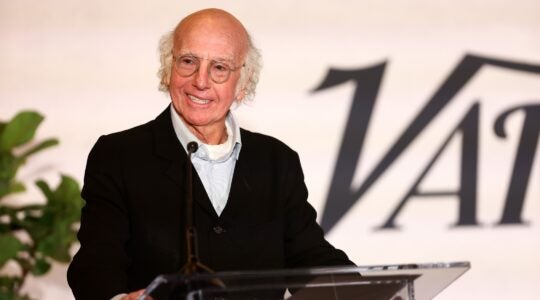Former Soviet dissident Natan Sharansky, who now chairs the Shalem Center‘s Adelson Institute for Strategic Studies (yes, that Adelson), says all of Israel’s current problems can be traced to one core problem: the decline of Israel’s Zionist identity.
It is to blame for changes made in the 1990s to Israel’s code of military conduct, which hampers the ability of Israeli troops to defend themselves and the country; it’s to blame for the culture of political corruption in Jerusalem, where Knesset members are more keen on keeping their jobs than on guiding the country to where it needs to go; and it’s to blame for the persistence of the belief among Israel’s enemies that they can wear down the Jewish state and eventually destroy it, he says.
Sharansky, who sat down with me Thursday in New York, strikes the same theme in his new book, “Defending Identity: Its Indispensable Role in Protecting Democracy.”
In a nutshell, Sharansky argues that ethnic identity, rather than threatening freedom, guarantees liberty and democracy. He was in the United States for a book tour (which, he noted wryly, is less lucrative than it used to be, given the decline of the dollar against the shekel).
In our conversation, Sharansky told me Israel’s enemies are becoming stronger only because Israel looks like it is becoming weaker.
Why does Israel look this way? Post-Zionism.
The cure? A Jewish, Zionist identity.
Sharansky sounds some of the same themes American Jews sound when speaking of the dangers of assimilation. Except whereas the price in America is the gradual watering-down or disappearance of Jewish identity among American Jews, in Israel the very survival of the Jewish state is at stake.
To promote the return of Zionist ideology to Israel, Sharansky is collaborating with the likes of Moshe (Boogie) Ya’alon, Martin Kramer, Michael Oren, Yossi Klein Halevi and others on researching the problems and suggesting possible solutions.
One of the things he’s not doing is running for Knesset, which he left in 2005 to protest Ariel Sharon’s withdrawal of Israeli settlers and troops from Gaza, which Sharansky insists was a big mistake.
Will Sharansky ever return to politics? “Nobody can leave politics in Israel,” he says.
JTA has documented Jewish history in real-time for over a century. Keep our journalism strong by joining us in supporting independent, award-winning reporting.





